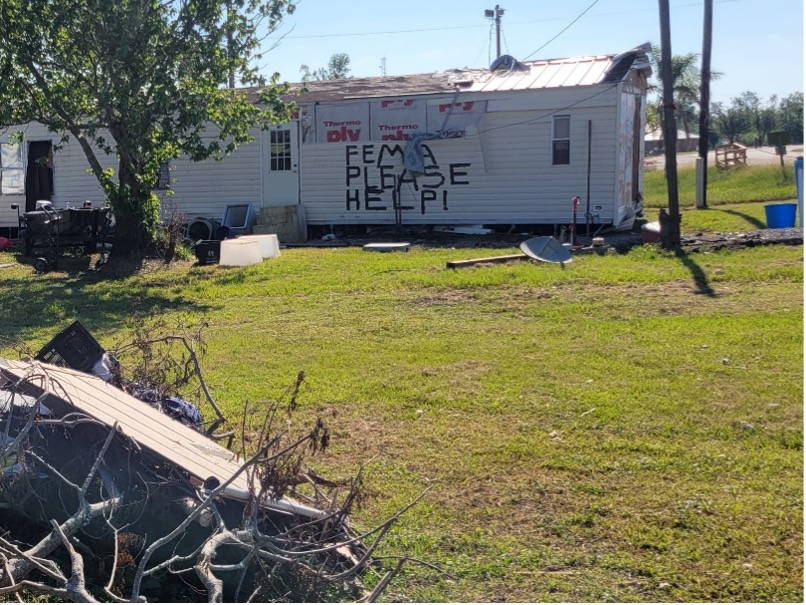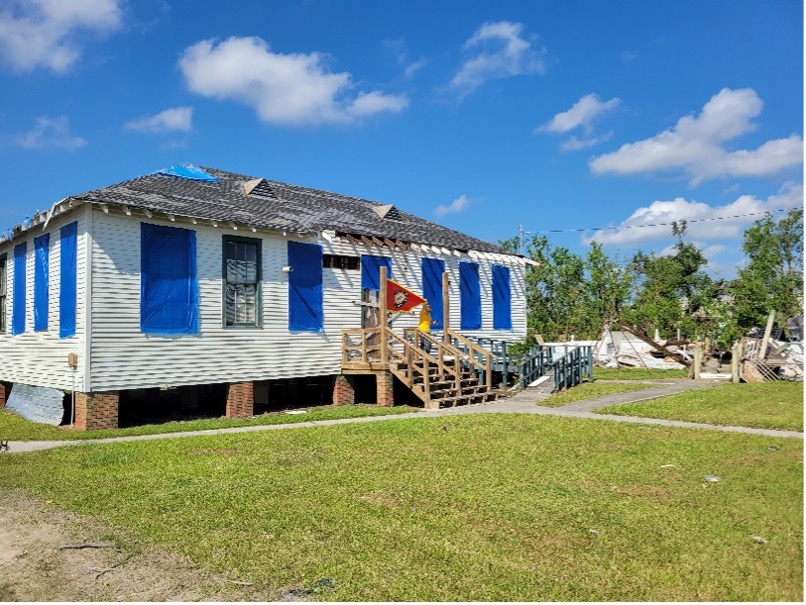
After Hurricane Ida tore through the area, signs such as this blanketed Golden Meadow, Louisiana, where the United Houma Nation resides. Photo provided by ACS
While assisting with mobile distribution of goods in Maurepas, Louisiana, in early October, a contact from the Indian Nation reached out to Arkansas-Louisiana Conference Adventist Community Services (ACS) director Lavida Whitson, asking if we might be able to help them.
There are more than 500 federally-recognized Indian Nations within the United States. During the recovery effort after Hurricane Katrina, ACS assisted the United Houma Nation for many months and, based on this history, they were now asking if we might be able to assist during Hurricane Ida recovery.
While we have plans to continue to help across the state, we were unaware of the amount of damage that took place within this community. Whitson asked if the NAD would accompany her in speaking with Donny Verdin, vice principal chief of the Houma Indian nation in Louisiana. We arranged to meet with Chief Verdin on Sunday morning to get an overview of what the needs were within his community — and ascertain how ACS could be of support.
As we approached the town, the amount of damage was obvious. A few signs even asked when FEMA[1] was coming. Though it has been more than a month since the hurricane came ashore, many still await assistance.
Verdin was waiting on site when we arrived, sitting on the steps of tribe headquarters in Golden Meadow, Louisiana. Chief Verdin explained that the Houma nation was comprised of about 17,000 individuals. Many of them had been displaced since Ida and the leadership was trying to get them any help they could. As we continued talking, Verdin stressed that rebuilding of the homes was the greatest need; but clothing, bedding and other household items were also needed by those still in their homes. He expressed his thoughts, telling us that “no one is helping my community.”
While we understood the need for shelter, we discussed the current level of support ACS was giving within the state currently and stressed to him our desire to adjust our plan to include, if possible, the United Houma Nation.

This is the United Houma Nation headquarters; next to it (right) is the radio station destroyed by Hurricane Ida. Photo provided by ACS
Putting Plans Into Place
In discussion with Whitson later, we determined that the Arkansas-Louisiana Conference would begin putting goods together for this part of the state. We’ve also reached out to ADRA’s [2] leadership about possible partnership in this effort — a proposal will be sent to the relief agency.
One resident approached me as we surveyed the damage to the Houma Nation radio station and asked, “What are we suppose to do?” While I didn’t have a good answer for her in regard to the damaged station, I did express our intent to help her and others with the goods we have. My hope is these efforts, combined with others, will ensure a livable situation for many that have been overlooked.
The work will also go on in recovery in additional communities further north that have been impacted. ACS will continue serving though the news no longer highlights this continued need.
